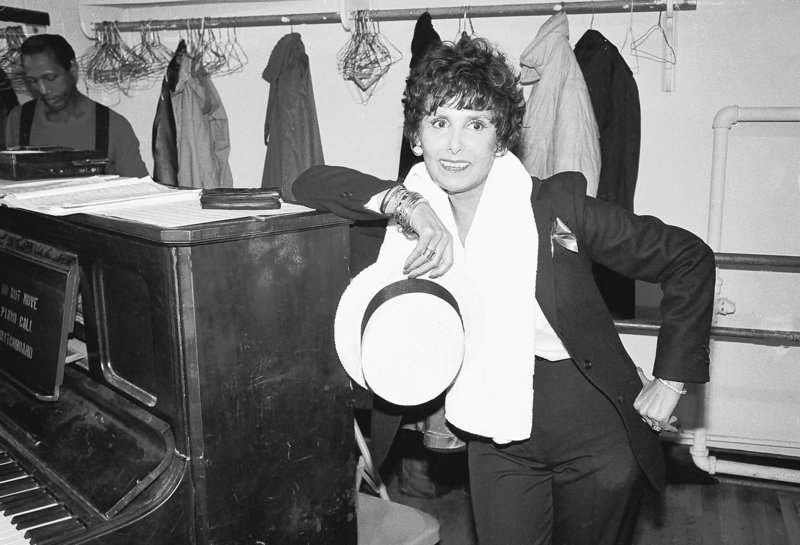NEW YORK – Lena Horne, the enchanting jazz singer and actress known for her plaintive, signature song “Stormy Weather” and for her triumph over the bigotry that allowed her to entertain white audiences but not socialize with them, has died. She was 92.
Horne died Sunday at New York-Presbyterian Hospital, said hospital spokeswoman Gloria Chin.
Quincy Jones, a longtime friend and collaborator, was among those mourning her death Monday.
“Our friendship dated back more than 50 years and continued up until the last moment, her inner and outer beauty immediately bonding us forever,” said Jones, who worked with Horne on the film “The Wiz” and a Grammy-winning live album.
“Lena Horne was a pioneering groundbreaker, making inroads into a world that had never before been explored by African-American women, and she did it on her own terms,” he said. “Our nation and the world has lost one of the great artistic icons of the 20th century. There will never be another like Lena Horne and I will miss her deeply.”
“I knew her from the time I was born, and whenever I needed anything she was there,” Liza Minnelli said. “She was funny, sophisticated and truly one of a kind. We lost an original. Thank you Lena.” Her father, director Vincente Minnelli, brought Horne to Hollywood to star in “Cabin in the Sky” in 1943.
Horne, whose striking beauty often overshadowed her talent and artistry, was remarkably candid about the underlying reason for her success: “I was unique in that I was a kind of black that white people could accept,” she once said. “I was their daydream. I had the worst kind of acceptance because it was never for how great I was or what I contributed. It was because of the way I looked.”
In the 1940s, Horne was one of the first black performers hired to sing with a major white band, and when she signed with MGM, she was among a handful of black actors to have a contract with a major Hollywood studio.
In 1943, MGM Studios loaned her to 20th Century-Fox to play the role of Selina Rogers in the all-black movie musical “Stormy Weather.” Her rendition of the title song became a major hit and her most famous tune.
Horne had an impressive musical range, from blues and jazz to the sophistication of Rodgers and Hart in songs such as “The Lady Is a Tramp” and “Bewitched, Bothered and Bewildered.” In 1942’s “Panama Hattie,” her first movie with MGM, she sang Cole Porter’s “Just One of Those Things,” winning critical acclaim.
In her first big Broadway success, as the star of “Jamaica” in 1957, reviewer Richard Watts Jr. called her “one of the incomparable performers of our time.” Songwriter Buddy de Sylva dubbed her “the best female singer of songs.”
“It’s just a great loss,” Janet Jackson said Monday. “She brought much joy into everyone’s lives — even the younger generations, younger than myself. She was such a great talent. She opened up such doors for artists like myself.”
Horne was perpetually frustrated with racism.
“I was always battling the system to try to get to be with my people. Finally, I wouldn’t work for places that kept us out. … It was a damn fight everywhere I was, every place I worked, in New York, in Hollywood, all over the world,” she said in Brian Lanker’s book “I Dream a World: Portraits of Black Women Who Changed America.”
Send questions/comments to the editors.



Success. Please wait for the page to reload. If the page does not reload within 5 seconds, please refresh the page.
Enter your email and password to access comments.
Hi, to comment on stories you must . This profile is in addition to your subscription and website login.
Already have a commenting profile? .
Invalid username/password.
Please check your email to confirm and complete your registration.
Only subscribers are eligible to post comments. Please subscribe or login first for digital access. Here’s why.
Use the form below to reset your password. When you've submitted your account email, we will send an email with a reset code.